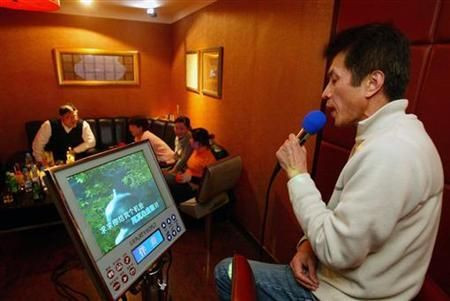China's KTV Karaoke Clubs Closing Doors As Rent Goes Up And Interest Falls

The effects of China’s government austerity plans have been felt by many industries that relied on the opulent spending of state officials to fuel business. High-end restaurants, expensive liquor and fancy hotels have all seen dwindling numbers as a result of government restrictions. Those restrictions now have taken a toll on one of the country’s most popular modern pastimes – karaoke clubs.
As a result of recent policy shifts, Chinese government officials have been absent from karaoke clubs. President Xi Jinping’s hallmark policy to crack down on luxury spending, bribery and adultery has made businesses that promote or facilitate such behavior vulnerable. Among them are the country’s karaoke clubs, or KTV venues, as they are known.
A report by China Radio Beijing found that Beijing’s KTV clubs have been shuttering due to high costs and declining customers. The clubs were once an integral part of the capital’s nightlife, providing opulent private rooms and full food and bar services. At KTVs, businesspeople and government officials could indulge in some debauchery in a relatively contained and private environment.
Now, as China’s government eliminates dinner parties, banquets and recreational spending, the nightlife that used to follow such events is taking a hit.
A report from the Beijing Youth Daily late last year found that those outlets that have remained open are operating at 50 percent capacity during high-traffic times like weekends and holidays. The report points to three main reasons the clubs may soon be obsolete: increasing rent, declining interest from young people devoted to other forms of entertainment and the new government restrictions, adding that as long as the government strictly controls officials' behavior, the KTV industry will be hurt. “With the government-controlled consumption, the number of people going out to dinner declines. ... We have lost a lot of customers,” a digital operations manager said in a separate report by the Beijing Youth Daily.
The loss of foot traffic in clubs is exacerbated by increasingly expensive real estate rentals in the city. China Radio Beijing reported that Cashbox KTV, one of the city’s larger chains, announced the closing of one of its Beijing outlets on Sunday, the latest in a series of shutterings. In the past two years, leading KTV companies like Le Saint have closed a number of locations in Beijing, as well as in Shanghai and Changsha, the report said.
“The company has been operating at a loss and negotiations for cheaper rental space have failed, causing the early termination of the lease,” Cashbox said. Wang Bing, the manager of another well-known KTV chain, said this wasn’t a problem unique to Cashbox.
“Rent costs account for a large proportion of the KTV [operation]. Contracts basically increase year by year. The annual rise is not that much, but it will rise.”
But Wang is confident there is a future for KTV clubs if changes are made. Wang says new business models that can combine the Internet and value-added services to the KTV experience could be the key to saving the industry.
© Copyright IBTimes 2025. All rights reserved.






















